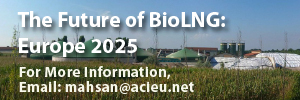Algae biofuel waste converted to ‘valuable’ commodity
Researchers in the US have developed a method to convert a biofuel waste product into a ‘usable and valuable commodity’.
Published in the journal Bioresources Technology, the research by scientists from Washington State University (WSU) and the Pacific Northwest National Laboratory (PNNL) could drastically change the economic viability of algae biofuels.
The conversion of algae to biofuels is a two-step process. The first, developed by PNNL, applies high pressure and high temperature to algae to create bio oil. The second converts that bio oil into biofuel which can replace gasoline, diesel and jet fuel.
Named hydrothermal liquefaction, the first step of the process produces significant quantities of waste. Approximately 25-40% carbon and 80% of nutrients from the algae are left behind in wastewater streams.
According to a WSU statement, Professor Birgitte K. Ahring and her team have found that adapting anaerobic microbes to break down the residue is a viable option. The process leads to the material becoming degradable, and transforming into a bionatural gas without the use of harsh chemicals. The remaining solid material can be applied as a fertiliser or recycled back into the hydrothermal liquefaction process for re-use.
“It has always been my mantra that we shouldn’t waste water. We had an idea that we could turn this waste product into something useful, such as a fertiliser. Our findings revealed that we could use this waste product as something much more,” Ahring said.
Sewage sludge to fuel
According to a statement from WSU, the team’s research has been so successful that they are now partnering with PNNL on its conversion of sewage sludge to fuel, using a similar strategy to that developed for wastewater.
“Today, sewage sludge is found throughout the world,” Ahring said. “Creating a process to produce biofuels, bio-natural gas, and nutrients from this material would be of major importance. The current study has demonstrated that nothing should ever be regarded as a waste, but instead as a resource.”




















